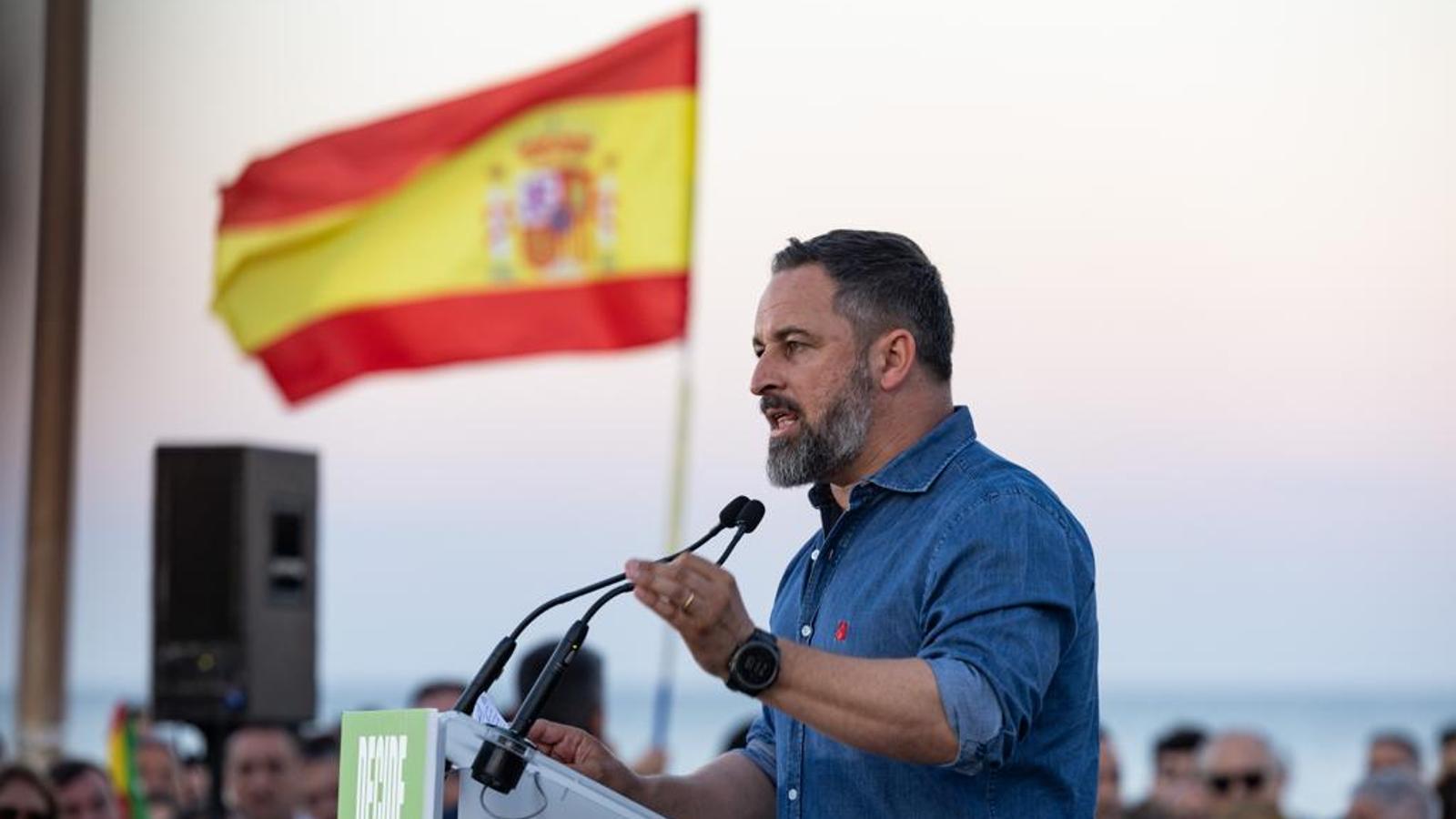Franco: Why does the dictator still divide Spanish politics?
Experts point to the lack of memory policies and historical revisionism as part of the culture war


MadridWhen Pedro Sánchez announced that in 2025 he would organize a series of institutional events to commemorate fifty years of "freedom," the opposition reacted angrily. "They can exhume Franco 100 times and act nostalgic for the conflict between Spaniards, but that won't stop the rest of us from wanting to build a future together [...]. How tiresome," said the leader of the PP, Alberto Núñez Feijóo, and the far-right Vox party went even further, adding that one can speak "well or ill" of the dictator. This episode is a paradigmatic example of how, half a century later, the figure of Franco is a divisive element in Spanish politics. There is no consensus on historical memory between the right and the left, and, moreover, there is a new glorification of Francoism that is taking root in the younger generations. The clearest example is the speech given by Vox deputy Manuel Mariscal, 33, from the podium in Congress: "And thanks to social media, many young people are discovering that the period after the Civil War was not a dark time, as the government portrays it, but rather one of reconstruction, progress, and reconciliation."
But why is this? Above all, due to the lack of historical memory policies. This is the conclusion reached by all the experts consulted by this newspaper. Memory policies, as sociologist Marta Rovira points out, arrived in Spain "very late and poorly," around the year 2000, which prevented the victims of the dictatorship from participating in the process. Jordi Guixé, historian and director of the European Observatory of Memories, adds that the person who dedicated the most effort to implementing these types of policies was Franco himself during his regime. He gives a concrete example: the propaganda slogan "25 years of peace," devised by the dictatorship in 1964 to counteract the effects of repression. All of this, Guixé says, seeps in and is passed down from generation to generation, affecting people's "morale," especially considering the Church's support for the National Catholic movement.
Nico Sesma, author of the book Neither one, nor great, nor free: the Francoist dictatorship (1939-1977)He considers it "serious" that even today there is still no "basic condemnation" of the dictatorial regime. One should condemn it, he affirms, solely for "democratic reasons." "One can discuss what happened during the war, but there should be a fundamental condemnation of the dictatorship," he clarifies, "solely for democratic reasons," he repeats.
Historical revisionism, a global phenomenon
The right's stance is linked to its historical role in the dictatorship. The People's Party (PP), successor to the People's Alliance, has never condemned the regime, Rovira points out, and this has been part of its political culture. Over the years, its rhetoric hasn't softened; quite the opposite, in fact: competition with the far-right Vox party has had consequences. Nico Sesma explains that the cultural war waged by the far right on a global scale also includes the issue of historical memory. "Historical revisionism is part of global trends," he states, citing the example of France, where the far right uses the same kind of strategies with Marshal Philippe Pétain, head of government of the Vichy collaborationist regime. "They say that the hero of the First World War and the dictator should be separated, or that there were French Jews who weren't deported [...]."America first "Applied to history," says Sesma. Rovira differentiates this attitude of current fascism, which he defines as "nostalgic," from the fascism of the 20th century, which was "futuristic." That is, the current far right speaks of a nonexistent past to counteract memory policies, for example, with the laws they govern, which are pending review by the Constitutional Court. For Guixé, it is necessary for the right to reflect on the memory policy of Angela Merkel's Christian Democrats, who, he says, was the chancellor who invested in more memorials and, moreover, made it mandatory for schoolchildren to visit them. "Electoral interest," he concludes, in addition to being critical of the left for not acting even more forcefully. The data
The other alarming factor, experts say, is the data regarding what current Spanish society thinks of the Franco regime. According to the CIS (Spanish Center for Sociological Research), 21.3% of citizens believe that the years of the dictatorship were "good" or "very good." For Nico Sesma, the worrying thing is not so much the figure itself—he says that similar levels of support exist in Eastern Europe with communist dictatorships—but rather the profile of the citizens who hold this opinion. "These aren't older people who might miss the past, but young men," he emphasizes. "They probably project the problems of the present onto the past, since Vox presents them with a completely idealized era that doesn't exist."
While the lack of memory policies is the main problem in Spain, why might some of the younger generation, who have already been the recipients of such policies, hold this opinion? Guixé admits that the initiatives haven't been sufficiently refined. To begin with, the director of the Observatory of Memories says that students haven't been properly taught what really happened; "there's a disconnect between the younger generations and reality." Furthermore, he believes there has been a "trivialization" of the concepts, especially in the political and media spheres, which doesn't help convey the "significance" of the events. He's referring to the use of words. Nazism and fascism in the public debate.
That's why he calls for greater involvement from the education sector: he believes that visiting sites of memory, such as the Agramunt air-raid shelter or the routes of exile, should be part of the curriculum. In the case of Catalonia, he points out, the situation is better, but because "we're living off past achievements," alluding to the work done "from 2007 to 2011." But he misses funding: "My view is that we're very legislative, focused on laws, but then we lack executive power," he concludes.

